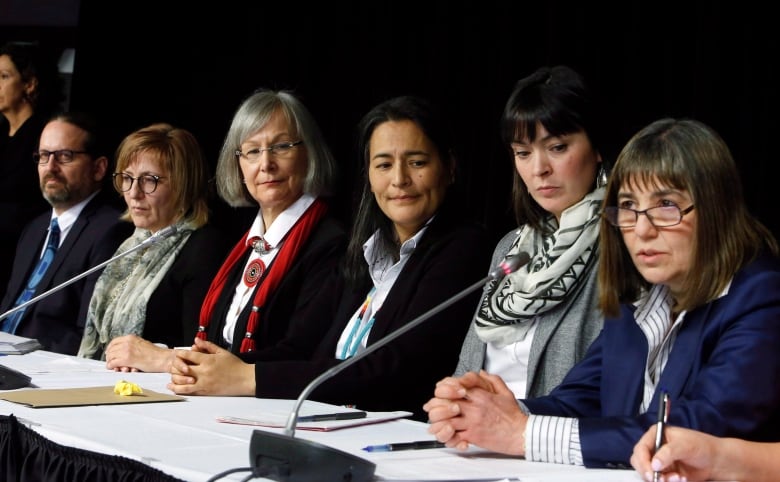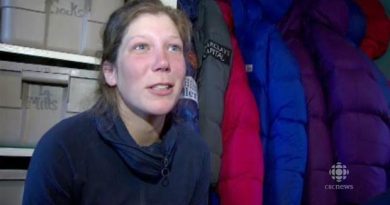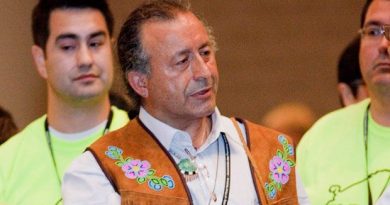Inuit-specific mental health services among recommendations in Canadian report on violence against Indigenous women

Culturally relevant policing and mental health services are among the Inuit-specific recommendations in a Canadian report on violence against Indigenous women.
“Improving the safety and the social, economic, and cultural health and prosperity of Inuit women, girls, and 2SLGBTQQIA people can be achieved only through the sustained, wholesome,and transparent collaborative action of all governments (federal, provincial, and territorial)in full partnership with Inuit,” says the final report from National Inquiry into Missing and Murdered Indigenous Women and Girls.
“Inuit society is artificially compartmentalized and divided through colonial geopolitical boundaries,” the report said.
“Therefore, federal, provincial, and territorial jurisdictions must work with Inuit self-determination mechanisms to ensure appropriate decision making regarding intervention programs and services. Further, all governments must not use jurisdiction as an excuse to impede actions required to eliminating the social, economic, political, and cultural inequality and infrastructure gaps that are resulting in increased violence against Inuit women,girls, and 2SLGBTQQIA people.”
National crisis
The National Inquiry into Missing and Murdered Aboriginal Women and Girls was announced by Prime Minister Justin Trudeau in 2015 after calls from many Indigenous leaders, groups and organisations to examine the high rates of violence against indigenous women in Canada.
Indigenous women make up 4 per cent of Canada’s female population, but 16 per cent of all women murdered in Canada between 1980 and 2012 were Indigenous, the government says.
The inquiry’s mandate was to examine and report on the systemic causes of violence against Indigenous women and girls as well as how investigations are conducted by authorities.
The report will be officially delivered to the Canadian government, as well as to the provincial and territorial governments, on Monday, but was obtained by CBC News and verified by sources, this week.
All three northern territories visited
The national inquiry held 15 public community hearings, and visited each of Canada’s northern territories: Yukon in the northwest, the Northwest Territories, and Canada’s eastern Arctic territory of Nunavut. The MMWIG commissioners heard 1484 testimonies from families and survivors during this period of the inquiry.
The report describes the high numbers of missing and murdered Indigenous women in the country as a “Canadian genocide.”
In its ‘Calls for Justice,’ the report stresses the need for responses to be tailored to the specific cultural and historical experiences of First Nations, Métis and Inuit communities.
“Inuit, Métis, and First Nations are distinct peoples. Implementation of all recommendations in this Final Report and actions taken to ensure safety and social, economic, political, and cultural health and prosperity of Inuit women, girls, and 2SLGBTQQIA people must be done in a manner that is distinctions-based, recognizing and reflecting the distinct needs and governance structures of Inuit and reflective of the distinct relationship between Inuit and the Crown,” the report says.
“They must also respect and appreciate the internal diversity within Inuit communities, including the diverse history, languages, dialects, and spiritual and religious beliefs.”
Nunavut hearings
Much of the testimony from Inuit during the hearings denounced the lack of services to address high rates of violence in the Arctic as well as a broken mental health system in the North staffed by a revolving door of healthcare workers from the South who were in the Arctic on short contracts and with little knowledge of Inuit language or culture.
The report calls on the government to address this, as well as resource an Inuit Healing and Wellness Fund.
“We call upon all governments to invest in the recruitment and capacity building of Inuit within the medical, health, and wellness service fields,” the report says. “Training and competency in both contemporary and Inuit medical, health, and wellness practices and methodologies are essential for effective services in these fields.”
The report also responded to the testimony by many Inuit families that stressed the importance of creating more mental health programs for Inuit men to help tackle the high rates of domestic and sexual violence in the North.
“We call upon all governments and service providers to ensure that Inuit men and boys are provided services that are gender- and Inuit-specific to address historic and on going trauma they are experiencing,” the report said. “These programs must be Inuit-led and -run, and must be well resourced and accessible.”
In total, there were 2386 participants in the MMIWG inquiry.
The inquiry’s closing ceremony takes place in Ottawa on Monday and will be live streamed on the MMIWG website.
Write to Eilís Quinn at eilis.quinn(at)cbc.ca
Related stories from around the North:
Canada: National inquiry calls murders and disappearances of Indigenous women a ‘Canadian genocide’, CBC News
Finland: Swedish-speaking Finnish women launch their own #metoo campaign, Yle News
Sweden: Report sheds light on Swedish minority’s historic mistreatment, Radio Sweden
United States: Alaska reckons with missing data on murdered Indigenous women, Alaska Public Media



